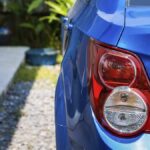Grinding Brakes? Here’s What’s Up and How to Fix It!
Ever heard your car’s brakes making weird noises? If the brakes are grinding, squealing, or rattling, it’s time to pay attention. Here’s a straightforward guide to tackle those pesky brake sounds before they turn into a bigger issue.
What’s That Noise?
If brakes are screeching, count yourself among the lucky few who haven’t faced the embarrassment of loud brakes. But those sounds aren’t just annoying—they can be dangerous. According to a 2015 NHTSA survey, faulty brakes were behind 22% of accidents between 2005 and 2007. The good news? Those noises can often point to the problem.
For example, a clattering sound might mean the brake pads are expanding due to heat or that the wrong pads were installed. Squealing could just be water on the rotors, but it might also signal worn brake pads. Grinding is the worst sound of all—it usually means repairs are on the horizon, and they can get pricey. Let’s break down the top reasons brakes might be grinding.
The Top 6 Reasons Behind Grinding Brakes
1. Worn Brake Pads
Brake pads are made from materials that help reduce friction, and they’re the ones that press against the rotors to slow down the wheels. If they haven’t been swapped out in 25,000 to 60,000 miles, they’re probably worn down. When the metal backing rubs against the rotor, it creates that nasty grinding sound. Swapping them out isn’t too tough, but it can take some time. Hiring a pro? Expect to drop around $300 per axle.
2. Worn-Out Rotors
Those shiny discs between your wheel spokes are the rotors. They get squeezed by the calipers to slow the car down. Given their close-to-the-ground location, they can rust or warp over time. With proper care, they can last between 30,000 to 70,000 miles. A monthly scrub with brake cleaner can help. If they do rust, expect a grinding sound. Replacing rotors can cost about $400 per axle, but resurfacing them might only set you back $10 to $20 each.
3. Low-Quality Brake Pads
Going cheap on brake pads isn’t a great idea. Lower prices often mean lower quality, leading to more repairs down the line. Cheaper pads usually have more metal, which can make them noisier. If they’re already installed, the best bet is to replace them. If the sound is more of a squeal than a grind, resurfacing the rotors might do the trick.
4. Lack of Lubrication
Think of brakes like a marathon runner—without water, they’re not going far. If the brake system isn’t lubricated, grinding sounds can pop up. Corroded fasteners on the brake caliper can cause annoying noises. This is an easy fix, but it might be simpler to let a mechanic handle it. A monthly lubrication check can prevent future issues.
5. Faulty Wheel Bearings
Wheel bearings let the wheels spin smoothly. If one goes bad or gets debris inside, it can create a loud grinding noise. A vibration might also be felt, similar to running over a rumble strip. Thankfully, wheel bearings usually last between 75,000 to 100,000 miles. If they do fail, replacing them can cost up to $700.
6. Car Has Been Sitting
If a car sits too long, it can develop rust and oxidation issues, leading to grinding brakes when it’s finally used again. To avoid this, take the car for a spin every month. Keeping it covered or parking on a tarp can help prevent rust as well.
Is It Safe to Drive with Grinding Brakes?
Brakes are the most crucial safety feature in any vehicle. So, is it safe to drive with grinding brakes? Not really. Grinding means something’s wrong, and ignoring it can lead to more severe problems—and dangers. It’s best to address the issue sooner rather than later.

![Experiencing Grinding Brakes? Here’s How to Resolve the Issue [Simple Guide]](https://autocheep.com/wp-content/uploads/2025/08/disc-brakes-with-brake-caliper-1024x576.jpg)

![Does Installing a Cold Air Intake Void Your Warranty? [Explained]](https://autocheep.com/wp-content/uploads/2025/08/Does-Adding-A-Cold-Air-Intake-Void-Warranty-150x150.jpg)